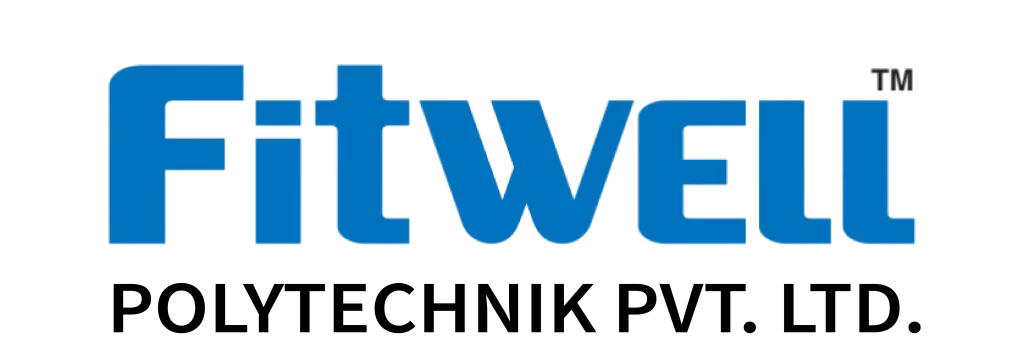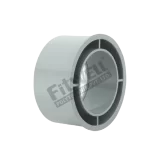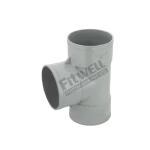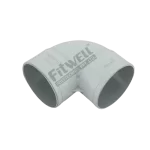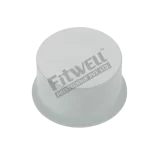Why CPVC Pipes Are the Future of Plumbing
Introduction
In the world of plumbing, choosing the right materials for piping and fittings is crucial for ensuring durability, safety, and efficiency. CPVC (Chlorinated Polyvinyl Chloride) pipes have become increasingly popular among professionals and homeowners alike. Due to their superior properties and cost-saving benefits, CPVC pipes are often regarded as the future of plumbing. In this article, we’ll explore the growing demand for CPVC pipes, their advantages over traditional materials, and why they are considered a game-changer in the plumbing industry.
What Makes CPVC Pipes Different from Other Pipes?
CPVC pipes are made from a thermoplastic known as chlorinated polyvinyl chloride, which is specifically engineered to handle a broader range of temperatures and pressures than standard PVC or UPVC pipes. This makes them ideal for both hot and cold water distribution in residential, commercial, and industrial settings.
Key Features of CPVC Pipes:
- Temperature Resistance: Can handle temperatures up to 200°F (93°C), making them suitable for hot water supply.
- Chemical Resistance: Resistant to corrosion and chemical reactions, ensuring a longer lifespan compared to metal pipes.
- Versatility: Compatible with various pipe fittings, including high-quality options like those from Fitwell, for creating a reliable plumbing system.
Benefits of Using CPVC Pipes in Modern Plumbing
The use of CPVC pipes in modern plumbing systems comes with numerous benefits that address some of the most common issues faced by traditional piping materials:
1. Durability and Longevity
CPVC pipes are designed to withstand high temperatures, pressure variations, and chemical exposure, providing a long-lasting solution for water distribution. Unlike metal pipes, CPVC pipes do not corrode or rust, ensuring that the plumbing system remains intact and leak-free for decades.
2. Cost-Efficiency
Although CPVC pipes may have a slightly higher upfront cost than PVC or UPVC pipes, their long-term durability and lower maintenance requirements result in significant cost savings over time. By reducing the frequency of repairs and replacements, CPVC pipes offer an economical solution for both homeowners and professionals.
3. Ease of Installation
CPVC pipes are lightweight and easy to cut, making them simple to install even in complex plumbing setups. Additionally, they are compatible with solvent cement, allowing for quick and secure connections without the need for specialized tools or equipment.
4. Enhanced Safety
CPVC pipes are non-toxic and meet stringent safety standards for drinking water supply. Their resistance to chemical reactions ensures that water remains clean and free from contaminants, making them an ideal choice for residential and commercial plumbing.
5. Versatility in Applications
CPVC pipes can be used in a wide range of applications, including residential plumbing, industrial piping, fire sprinkler systems, and chemical transport. Their compatibility with various pipe fittings, including those offered by Fitwell, allows for versatile use in different plumbing projects.
Long-Term Cost Savings with CPVC Pipes
One of the key reasons for the growing demand for CPVC pipes is the significant long-term cost savings they offer:
1. Reduced Maintenance Costs
Thanks to their resistance to corrosion, scaling, and chemical reactions, CPVC pipes require minimal maintenance over their lifespan. This reduces the need for frequent repairs, replacements, and water treatment, resulting in lower maintenance costs for homeowners and businesses.
2. Lower Energy Consumption
CPVC pipes have a lower thermal conductivity compared to metal pipes, helping to maintain water temperature more efficiently. This property is particularly advantageous for hot water supply systems, as it reduces the energy required to heat water, leading to lower utility bills.
3. Leak-Proof Connections
When installed using high-quality CPVC pipe fittings, such as those from Fitwell, the system is more likely to remain leak-free. This not only prevents water wastage but also protects the building structure from water damage, avoiding costly repairs.
Manufacturing Process of CPVC Piping Systems
Long-Term Cost Savings with CPVC Pipes
One of the key reasons for the growing demand for CPVC pipes is the significant long-term cost savings they offer:
1. Reduced Maintenance Costs
Thanks to their resistance to corrosion, scaling, and chemical reactions, CPVC pipes require minimal maintenance over their lifespan. This reduces the need for frequent repairs, replacements, and water treatment, resulting in lower maintenance costs for homeowners and businesses.
2. Lower Energy Consumption
CPVC pipes have a lower thermal conductivity compared to metal pipes, helping to maintain water temperature more efficiently. This property is particularly advantageous for hot water supply systems, as it reduces the energy required to heat water, leading to lower utility bills.
3. Leak-Proof Connections
When installed using high-quality CPVC pipe fittings, such as those from Fitwell, the system is more likely to remain leak-free. This not only prevents water wastage but also protects the building structure from water damage, avoiding costly repairs.
CPVC Pipe Fittings: Ensuring a Leak-Proof Plumbing System
The choice of pipe fittings plays a crucial role in the overall performance of a plumbing system. CPVC pipe fittings are designed to provide secure and leak-proof connections, ensuring the system operates efficiently. Here’s why investing in quality CPVC pipe fittings is essential:
1. Perfect Fit
High-quality CPVC fittings, such as those from Fitwell, are manufactured with precision to match the exact dimensions of CPVC pipes. This results in a tight fit that prevents leaks and ensures a smooth flow of water.
2. Compatibility with Solvent Cement
CPVC pipe fittings are compatible with solvent cement, creating a chemical bond that solidifies the connection. This method of joining pipes is not only quick but also provides a durable seal that can withstand high pressure and temperature variations.
3. Variety Fittings
CPVC fittings come in various shapes and sizes, including elbows, tees, couplings, and reducers. This variety allows for the construction of complex plumbing layouts tailored to specific requirements, whether for residential, commercial, or industrial use.
Comparing CPVC Pipes to UPVC Pipes
While both CPVC and UPVC pipes are commonly used in plumbing, they have distinct differences that make CPVC the superior choice for certain applications:
1. Temperature Resistance
- CPVC Pipes: Can handle hot water applications, withstanding temperatures up to 200°F (93°C) without warping or degrading.
- UPVC Pipes: Suitable primarily for cold water supply, as they cannot handle high temperatures effectively.
2. Chemical Resistance
Both CPVC and UPVC pipes are resistant to corrosion and chemicals, but CPVC has a higher resistance to a broader range of chemicals, making it suitable for industrial and chemical transport applications.
3. Cost
- UPVC Pipes: Generally have a lower initial cost compared to CPVC pipes.
- CPVC Pipes: Offer long-term savings due to their durability, lower maintenance requirements, and suitability for both hot and cold water applications.
Conclusion
CPVC pipes are revolutionizing the plumbing industry by offering unmatched durability, cost savings, and versatility. Their resistance to high temperatures, corrosion, and chemical reactions make them the ideal choice for both residential and commercial plumbing systems. By pairing CPVC pipes with quality fittings, such as those from Fitwell, you can create a leak-proof, efficient, and long-lasting plumbing solution
Stay on the forefront of industry trends by checking out our latest content
Stay ahead with our latest content, designed to keep you informed on the newest industry trends and insights. Discover valuable updates that help you lead in your field.

Trusted uPVC Pipes Manufacturers for India’s Top Contractors
Introduction: The Surge in Demand for uPVC Pipes Among Top Contractors in India The construction and infrastructure sectors in India have witnessed a significant transition toward sustainable and long-lasting materials.
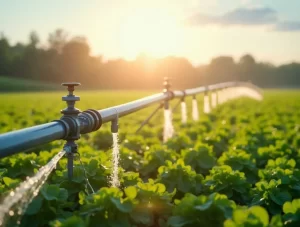
Top Innovations in Agricultural Pipe Fittings for Water Savings [2025]
Introduction to Agricultural Pipe Fittings and Water Sustainability Agricultural pipe fittings play a pivotal role in building efficient irrigation systems, crucial for modern farming practices. By exploring the versatility of

Expeart Tips from MDPE Pipe Fittings Manufacturers to Avoid Failures
Expeart Tips from MDPE Pipe Fittings Manufacturers to Avoid Failures Understanding MDPE Pipe Fittings: An Overview MDPE (Medium Density Polyethylene) fittings, used extensively in gas and water systems, offer strong,
Request a Free Consultation
Get personalized plumbing solutions with a free consultation from Fitwell.
